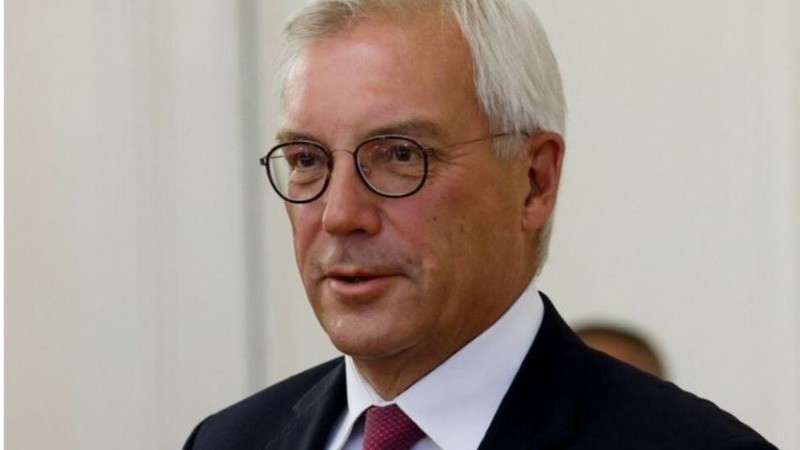
Russia said on Tuesday that it still maintains an emergency hotline with the United States and NATO to manage crises, as nuclear risks escalate amid the deepest confrontation between Moscow and the West since the Cold War.
Russian Deputy Foreign Minister Alexander Grushko, responsible for managing relations with Europe and NATO, expressed concerns in an interview with the state RIA news agency regarding the evolving dynamics of military strategy within the NATO alliance. He articulated that Moscow views NATO as progressively emphasizing the role of nuclear weapons in its strategic framework. This perception, according to Grushko, raises significant alarms in Moscow, as it suggests a shift towards more aggressive posturing that could escalate tensions in an already volatile geopolitical landscape. Grushko's remarks highlight Russia's apprehension about NATO's military doctrine, which he believes could potentially destabilize regional security and provoke a renewed arms race, necessitating a reassessment of Russia's own defense posture in response.
The ongoing war in Ukraine, which has lasted over two and a half years, is entering what Russian officials describe as its most perilous phase, with Russian forces advancing while the U.S. considers allowing Ukraine to target deeper into Russian territory using Western missiles.
President Vladimir Putin mentioned on September 12 that Western approval for such actions would signify "the direct involvement of NATO countries, the United States, and European countries in the war in Ukraine."
Russian Deputy Foreign Minister Alexander Grushko, responsible for relations with Europe and NATO, stated that Moscow views NATO as increasingly integrating nuclear weapons into its military strategy. He added that Russia is updating its nuclear doctrine to convey a clear message that opponents should not underestimate Russia's commitment to safeguarding its security by all available means.
Putin is reportedly modifying Russia's nuclear doctrine to lower the threshold for using such weapons in response to conventional attacks. The United States sees China as its primary competitor and regards Russia as its main nation-state threat, with President Joe Biden asserting that this century will be defined by a struggle between democracies and autocracies.
The hotline between Moscow and Washington was first established in 1963 to mitigate misunderstandings that escalated during the Cuban Missile Crisis of 1962. Now a secure computer communication system, it has been utilized during critical events like the Six-Day War in 1967, the Soviet invasion of Afghanistan in 1979, the 9/11 attacks in 2001, and following the U.S. invasion of Iraq in 2003.
In addition to the leaders’ hotline, there are nuclear hotlines between the Pentagon and the Russian defense ministry created during the Cold War to lower the risk of nuclear conflict. Following Putin's order to deploy thousands of Russian troops to Ukraine in February 2022, a "deconfliction" line was also set up between Russian and U.S. military forces to prevent the war from escalating into a direct U.S.-Russian conflict.
Defense Minister Andrei Belousov reached out to U.S. Defense Secretary Lloyd Austin in July regarding suspicions of a Ukrainian plan to attack Russia. Reports indicated that Austin had spoken with Belousov on July 12 concerning a covert Ukrainian operation that Moscow believed had U.S. support.
In addition, a Russia-NATO hotline established in 2013 aims to reduce misunderstandings during crises.